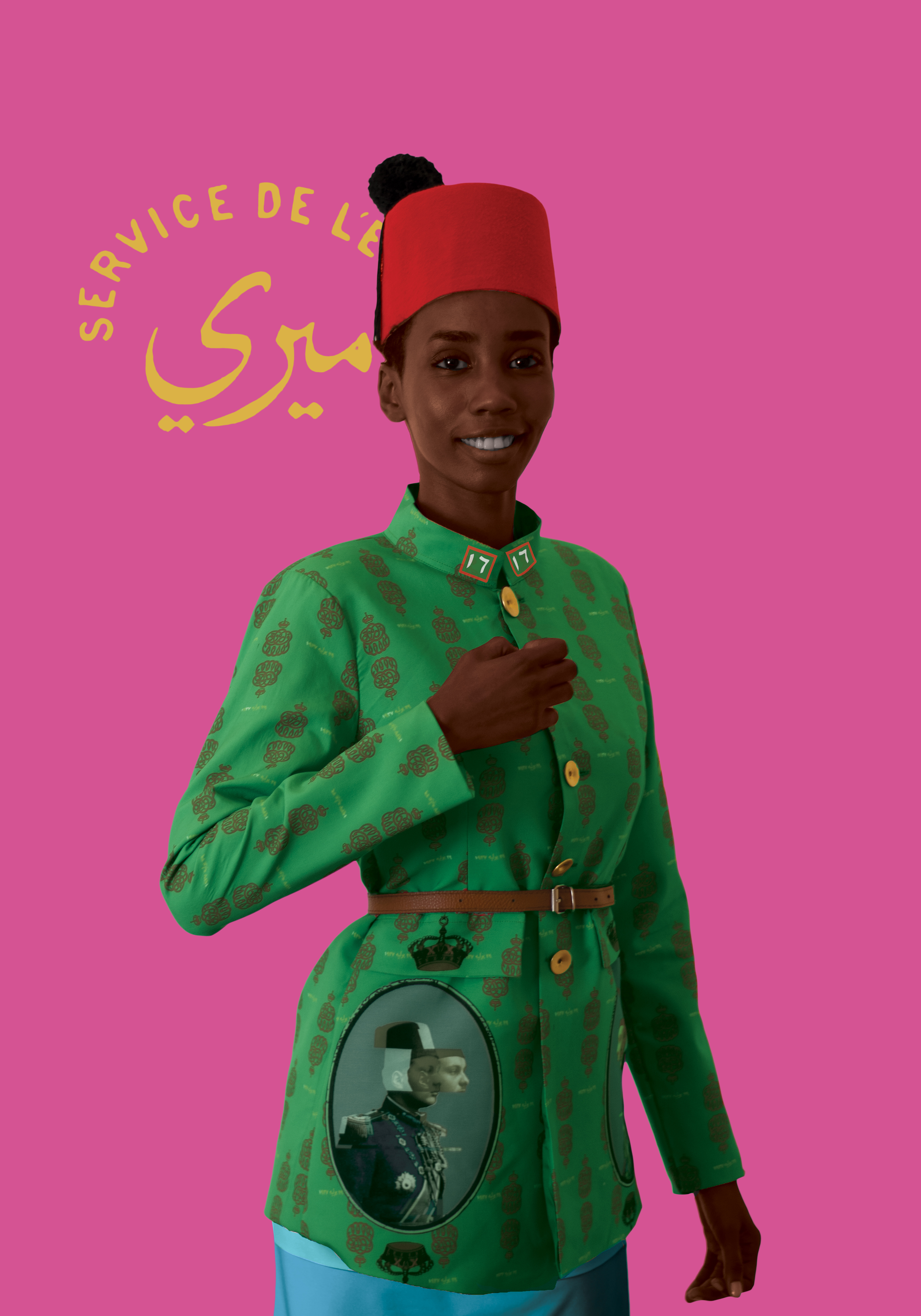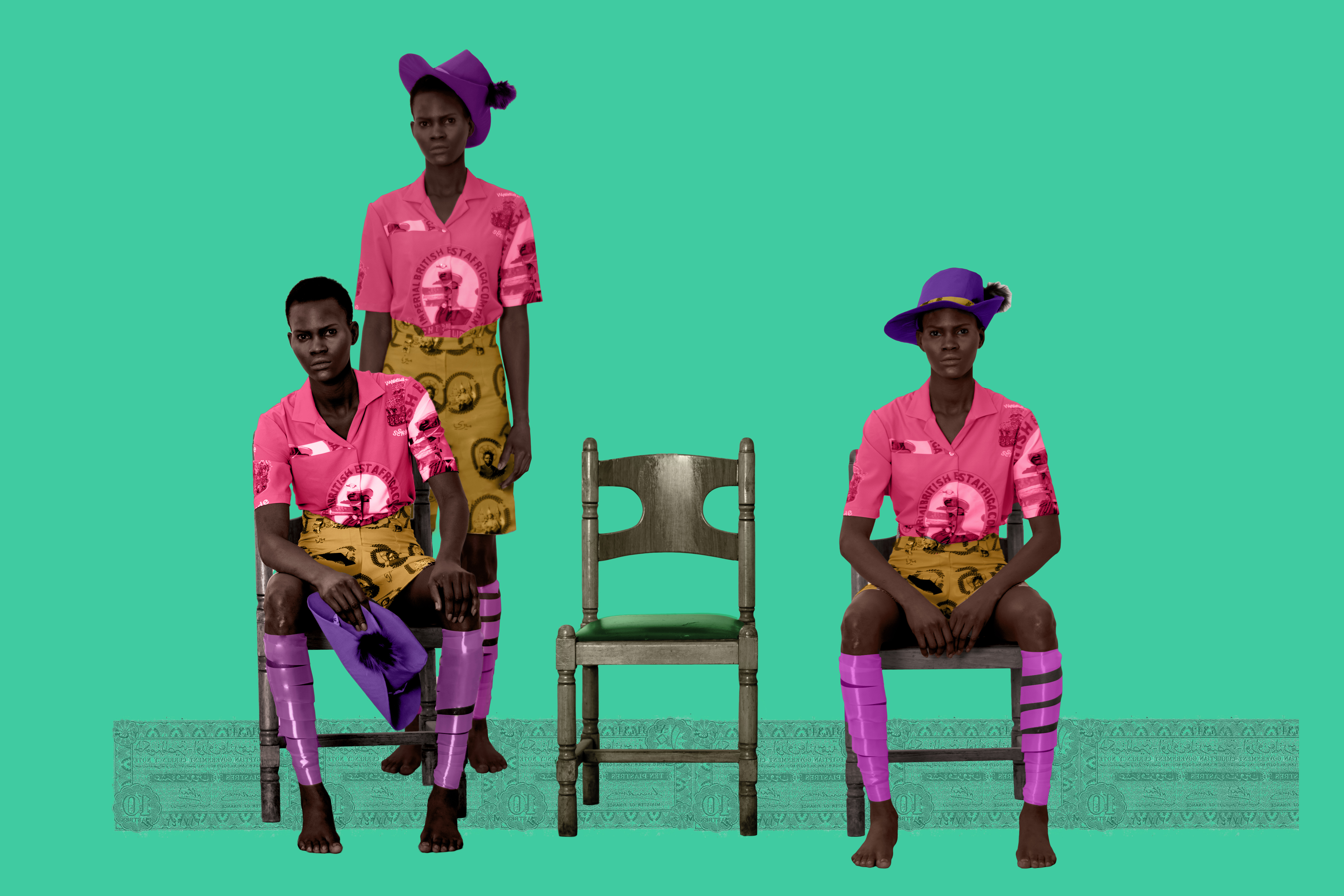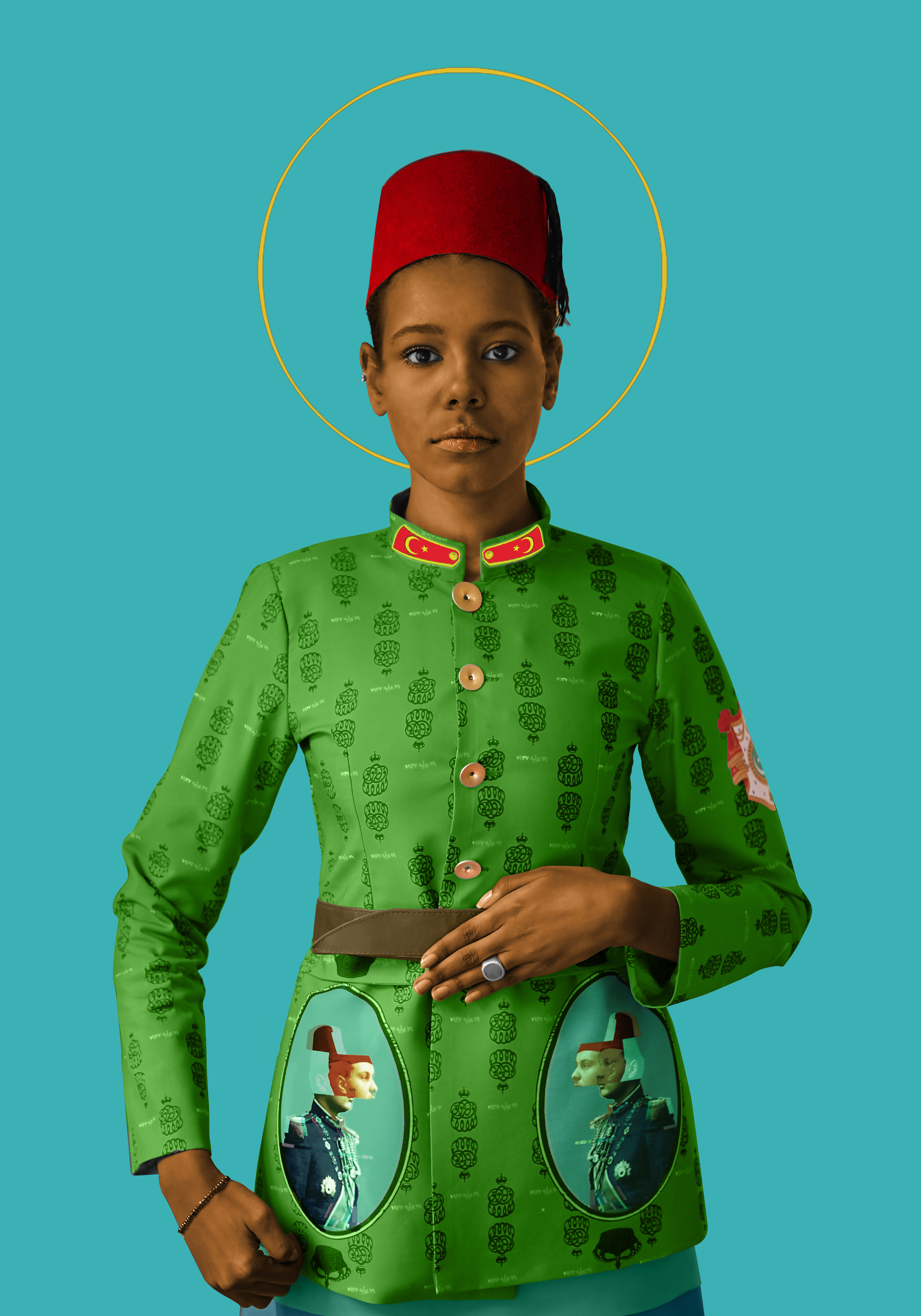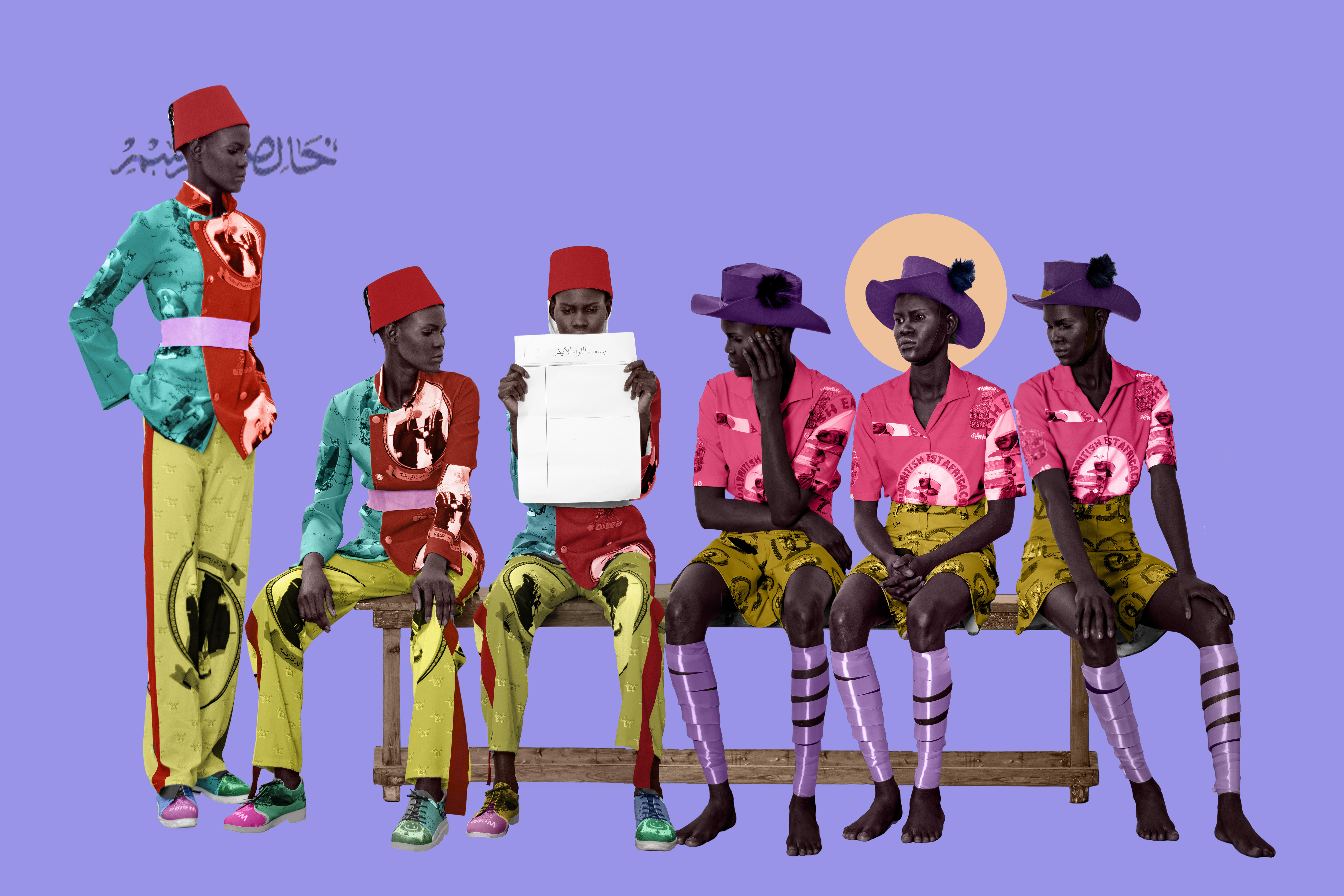In this exhibition visual artists Amado Afdani (Sudan/Egypt) pays homage to the Sudanese soldiers who served in European colonial armies (‘askaris’). They are martyrs rather than sell outs.
Askari Soldiers is one of Alfadni’s socio-political art projects on the history of the Askari (Arabic and Swahili for a military soldier). The Askari refers to the enslaved Sudanese soldier who served in the European colonial armies in Africa in the 19th and 20th centuries. During both world wars, Askaris also served outside the original colonies in Africa, the Middle East and Asia under European leadership. With Askari Soldiers, Alfadni denounces the idea of the enslaved Sudanese soldier and condemns the persistence of negative stereotypes of black Africans. Askari Soldiers consists of a series of digital photographs and a collection of fabrics that portray soldiers as unknown martyrs. For this, he uses an iconography associated with the colonial Anglo-Egyptian period.

Amado Alfadni is an Egyptian-born Sudanese visual artist. His work initiates a dialogue on identity and politics. He questions the power dynamics between the individual and authorities on a social and political level by examining forgotten historical events. Alfadni identifies as half-Sudanese and half-Egyptian, but he did not see these two parts of his identity reflected equally in his environment. Monuments of Egypt’s Arab history are clearly evident in the mosques and citadels, while his African Sudanese history is more difficult to trace. Alfadni uses images from colonial archives to make his Sudanese heritage visible, exploring the hidden history that comprises a large part of African history and depicting it in several works.

Amado Alfadni has been selected to receive a Thami Mnyele Foundation Award. During the Afrovibes Festival, he is participating in a residency at the Thami Mnyele Foundation, exhibiting a selection of his work at Framer Framed.



